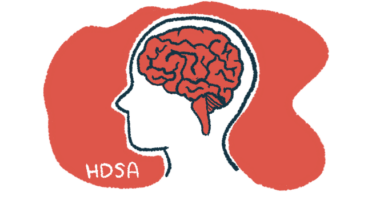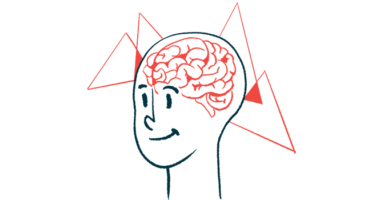HDSA 2025: Observational studies in Huntington’s now enrolling in US
Data from range of patients can help inform clinical trials, advance treatment

A number of observational studies meant to improve knowledge about Huntington’s disease — and aiming to inform clinical trials, generate data from patients of all ages, and help speed the development of new treatments — are now enrolling participants in the U.S.
Several of these studies were described by researchers during a Clinical Trials Showcase Lunch at the 40th annual convention of the Huntington’s Disease Society of America (HDSA), held last week in Indianapolis.
According to the researchers, the specific topics of these studies range from the use of new tech for assessing walking among patients, to the impact of Huntington’s on early brain development, to comparisons of symptoms among people with juvenile-onset versus adult-onset disease.
In addition to enrolling Huntington’s patients, several of the observational studies now recruiting are seeking adult volunteers who can serve as controls.
One such study, called MEND-HD (NCT07010705), aims to test the use of devices like smartwatches as patients go about their day-to-day lives.
Specifically, the study will focus on whether measurements taken with such devices might be used to assess walking patterns and chorea, or involuntary movements, in clinical trials testing new Huntington’s treatments.
“We’re going to be assessing the feasibility of using these types of technology to passively record outcome data,” said Lori Quinn, a physical therapist and professor at Columbia University who is involved in the study. “Our hope is that these [results] will be able to be used as clinical trial [outcomes] in people with early-stage HD [Huntington’s disease].”
MEND-HD study now enrolling adults with early-stage Huntington’s
MEND-HD is recruiting an estimated 40 people, ages 25 to 60, with adult-onset, early-stage Huntington’s, as well as 20 age- and sex-matched individuals without the disease. Quinn encouraged anyone who thinks they might be eligible to sign up.
“The beauty of this study is it’s completely remote. So you can be anywhere in the country … and participate,” Quinn said. “You will be meeting with a neurologist and a study coordinator remotely via Zoom to do all of the intake.”
Each participant will undergo up to four study visits — with the first two used for screening to assess eligibility. Among patients, a medical history will be taken and Huntington’s severity and stage will be assessed.
For those eligible to participate, the third visit will involve further assessments that will mark the study’s start. Participants will then be mailed two devices — one that’s worn on the wrist like a watch, and another worn on the lower back.
Quinn noted that both devices “are relatively small and unobtrusive,” as well as waterproof, so patients can shower or even swim while wearing them.
“You really should just pretend that they’re not even there,” Quinn said.
Devices will assess walking problems, chorea
In addition to chorea and walking problems, the devices will be used to evaluate physical activity, sleep, and vital signs like heart rate and breathing.
Participants will wear the devices for about two weeks, then will mail them back to researchers before a fourth and final visit. At that assessment, the researchers will conduct an in-depth interview with the participants and their care partners or family members.
“We’re not just going to be collecting these digital measures on their own, but we’re going to be linking them to participant interviews,” Quinn said.
Those completing this last visit will be paid $200, according to Quinn. Participants will also receive a report on what data was found from their sensors.
MEND-HD started recruitment in June, and the first screening visits are expected to take place this month. The study’s results are expected by the end of 2026.
The work is being funded by the U.S. Food and Drug Administration; the researchers hope this will help speed the approval of device-measured outcomes for use in Huntington’s trials.
While MEND-HD is now assessing just one time point, the researchers are hoping to secure more funding to extend the study over several years. That would allow them to better evaluate how these digital tools track disease progression over time.
People with parent, grandparent with Huntington’s sought for ChANGE HD
Another study, dubbed ChANGE HD (NCT01860339), is assessing how Huntington’s affects early brain development before symptom onset. This observational study had its origin nearly 20 years ago at a single center in Iowa, but now has expanded to six sites across the U.S.
“We’re trying to enhance understanding … on early disease progression” in young people “to inform clinical research focused on preventative gene therapies,” said Lauri Jennisch, one of the researchers leading the study.
ChANGE HD is now enrolling individuals, ages 6 to 30, who have a parent or grandparent with Huntington’s. Jennisch emphasized that participants don’t need to know whether or not they carry a Huntington’s-causing mutation.
Participants undergo a series of assessments, including a blood draw and an MRI scan, over the course of one day. There’s also a battery of tests measuring motor function, cognitive function, and behavior. Several test days will be completed over three or four years.
[In ChANGE HD,] we’re trying to enhance understanding … on early disease progression [in young people] to inform clinical research focused on preventative gene therapies.
Jennisch noted that many participants make test days a family affair, with siblings or cousins participating together, and most report it being a fun experience.
“People generally leave tired but smiling,” Jennisch said.
The study is funded by the National Institutes of Health, and participants receive compensation to cover travel expenses, hotel costs, and meals, as well as a $150 stipend for participating.
While the study is expected to conclude in August 2026, Jennisch encouraged people to enroll, as data gleaned from initial visits is especially valuable for understanding how Huntington’s affects brain development.
JoHD study looking at juvenile vs. adult-onset Huntington’s
The JoHD study (NCT05707663), involving six U.S. sites, is tracking brain development in individuals who were diagnosed with juvenile-onset Huntington’s before age 21. Eligible participants are ages 4 to 30. All will undergo two rounds of testing, about a year apart. The tests are similar to those in ChANGE HD, but each round of testing lasts two days.
“The objectives of the study are to look at the differences between [juvenile- and adult-onset Huntington’s], to look at the symptom presentation, [as well as] brain changes, [and] overall disease progression,” Jennisch said.
The study also will “look at the optimal time points for interventions,” Jennisch said.
JoHD is also slated to wrap up in August 2026.
In addition, the University of Iowa recently launched a pilot study called MINI HD, which aims to expand on ChANGE HD research and assess how Huntington’s-causing mutations affect brain development in infants and toddlers up to 5 years of age.
Note: The Huntington’s Disease News team is providing virtual coverage of the Huntington’s Disease Society of America annual convention June 26-28. Go here to see the latest stories from the conference.









